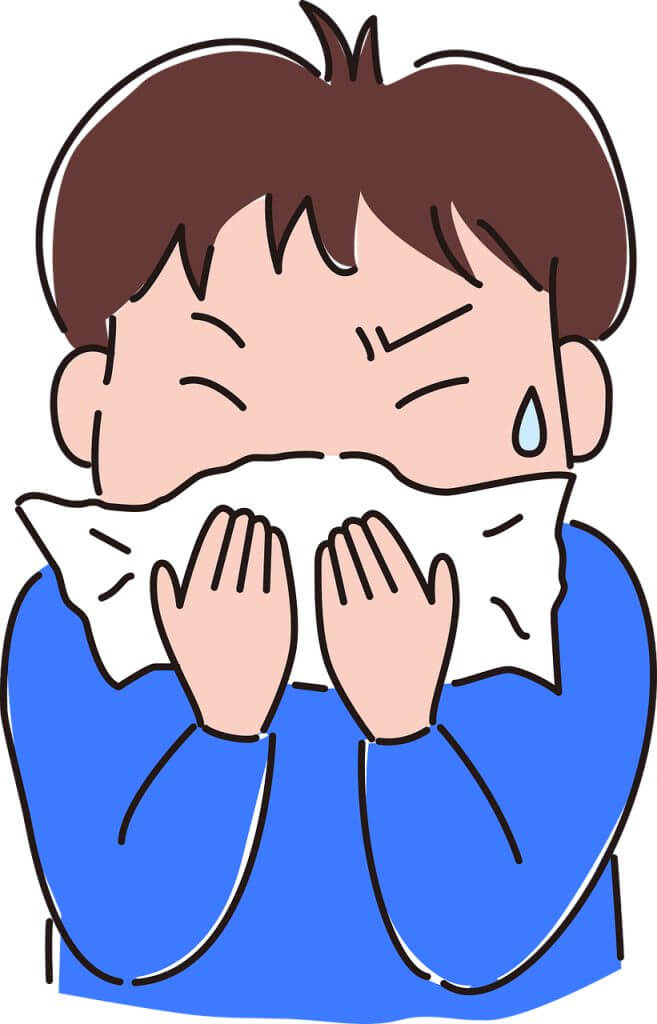
The baby with the stuffy nose
Whether they are a big baby or a small baby, having a baby with a stuffy nose is never easy. Everyone always gets so anxious. Is it the air conditioning system? Could it be from his/her older sister? What if it’s a more serious infection and this is just the beginning of a terrible illness?
Wait a second. Didn’t you say it was just a stuffy nose? Some congestion? Let’s get a plumber, why don’t we.
I hope this chapter is able to reassure you and also to provide you, the parents, with the right tools to help you detect when it is important to get a doctor’s assessment and when it is okay not to.
Why do babies get colds?
Usually because of viruses.
Really? Even when they’re really small?
Yes!
Do babies get congested more often than older kids?
No. In fact, the opposite is probably true.
A mother transfers antibodies (passive protection) to her baby, as early as pregnancy, but especially during the third trimester and this protects babies until they are a few months old.
In addition, we tend to protect babies more than older kids, and this usually means they are less likely to catch a virus than a child that attends daycare.
Nonetheless, when the baby’s older sister that attends daycare comes home with some snot on the tips of her fingers and caresses her younger brother and gives him a kiss, then obviously the baby’s defense mechanisms will not be able to overcome this, and he will develop a cold.
Does it matter whether or not the baby with the stuffy nose develops fever?
Yes, it is important.
A baby under the age of 2 months that develops fever must be assessed by a physician, as you will learn in the link here.
However, it is more common to see a baby with a runny nose without a fever or a baby over the age of 2 months with low grade fever, both of which are in line with a viral infection.
Then why is it such a big deal when a baby gets a stuffy nose?
There are several reasons to this.
In a small baby, everything is a big deal. In addition, when the first baby in the family gets a cold, it is always more concerning than when this happens to the seventh baby. At the same time, even a mild cold in a baby can cause irritating morbidity, including difficulty sleeping, breathing and eating. Since the baby’s airways are very narrow to being with, approximately several millimeters in diameter, a little bit of mucous is enough to completely obstruct them and this causes the baby to breathe noisily, wake up, cry and get frustrated and sometimes they can’t even eat or close their mouth around a nipple.
But what if it makes it way down to the lungs, doctor?
I love this question. We have a very important chapter on our website called “winter illnesses in children” and you can learn about the different terminologies for infections.
A cold is referred to as an upper respiratory tract infection.
When there are findings in the lungs, we refer to it as a lower respiratory tract infection.
Usually, when a baby is simply congested or has a runny nose and is not suffering from respiratory distress, there is no underlying lung infection.
When is it important to see a physician when a baby has a stuffy nose?
These are the conditions that warrant physical examination by a pediatrician:
1. Fever
2. Respiratory distress – sometimes the cold is the beginning of bronchiolitis, or in other words, involvement of the lower respiratory tract. Find out more about bronchiolitis in the following link.
3. Prolonged illness
How can the baby be treated?
You see, the hardest thing for a pediatrician to do is to stand in front of parents, especially if they are new parents, and tell them “There is really nothing you can do, it is most likely viral”. But often, that is truly the situation.
You would rather administer saline to the nose? Go ahead. It helps mostly in younger infants when it is given prior to feeding as it relieves some of the nasal congestion and allows them to complete their feeds. Any other drops? Or maybe a spray? Be my guest.
What about other types of treatments? Honestly, there is almost nothing out there that truly helps. Neither nebulizers (not even hypertonic saline, in my opinion), nor inhalers. These should be reserved to children that have recurrent wheezing, as you will learn in the post about the wheezing child. I am not a big fan of nebulizers but if you visit your doctor three times with the same complaint, they may cave and prescribe it.
In extreme situations where a very small baby is congested, we sometimes consider administering dethamycin. But this is only for exceptional cases.
What should I not do when my baby has a cold?
Lots of mothers like pouring milk on the child’s face.
If it really makes you feel better, fine.
It obviously does not do anything to the baby.
What about nasal/sinus washes?
Again, I have no intention of arguing with parents that administer nasal washes to their children like the ones they’ve seen in Japanese videos.
But I think that the risks outweigh the potential benefits, and I wouldn’t put my child through it, even if I had seen some baby guru on Tiktok do it to their child.
In summary, the take home message is not to get too concerned, but to visit your pediatrician when the illness is prolonged or seems to exceed beyond the borders of the nose. I expect younger babies to get a cold a couple of times during the winter, so use the guidelines I’ve provided here wisely.
Good luck!
For comments and questions, please register
